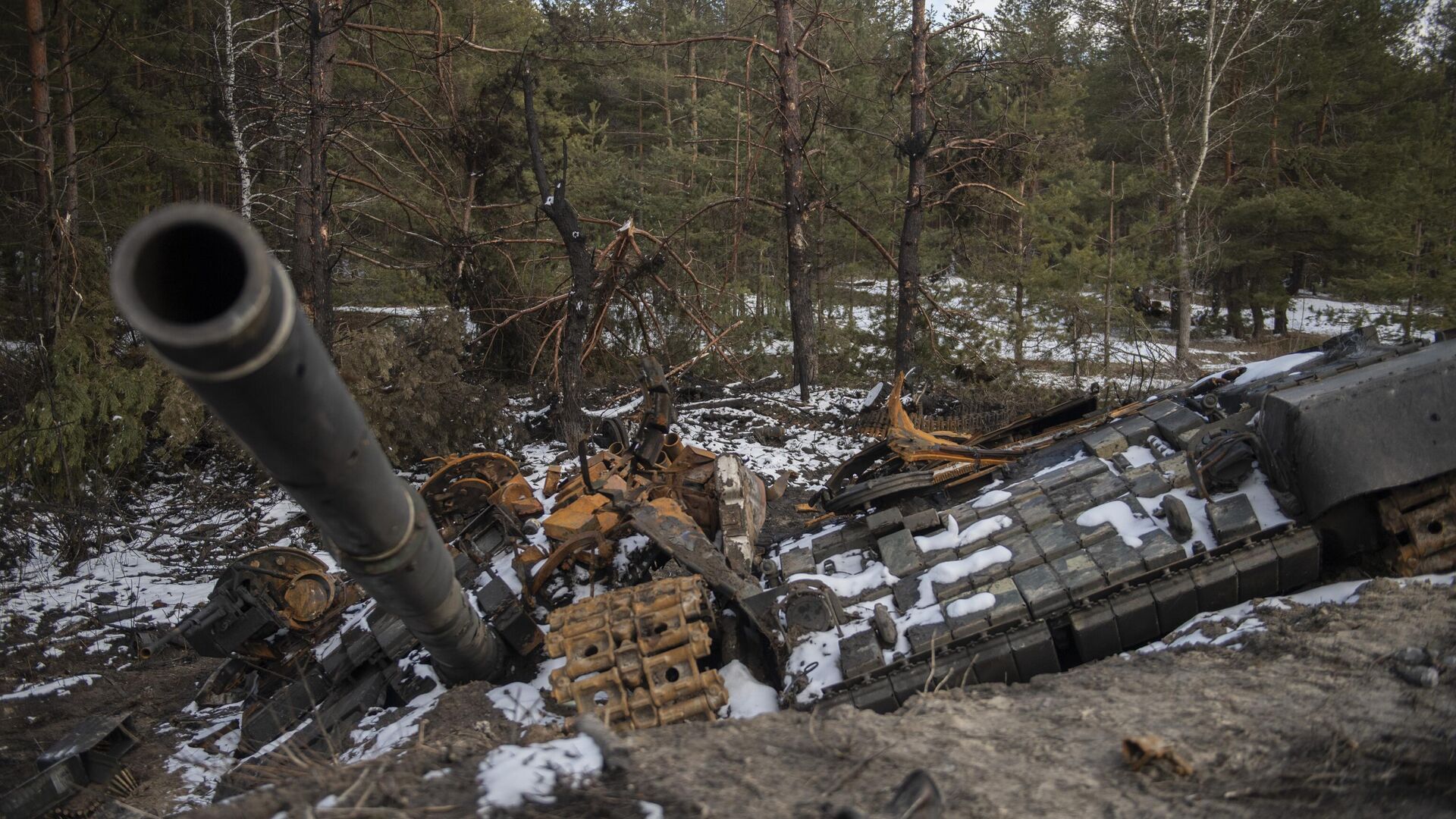Enlisting to Fight for Ukraine Would Be 'Suicide', Brazilian Soldier Warns
10:08 GMT 14.07.2023 (Updated: 10:54 GMT 14.07.2023)

© Sputnik / Valery Melnikov
/ Subscribe
Having wasted the lives of thousands of Ukrainians by press ganging them and sending them to their deaths in suicide attacks against Russian troop positions, Kiev now seeks to replenish its stocks of cannon fodder with mercenaries from foreign countries such as Brazil.
Earlier this week, Russia’s Ministry of Defense warned that Kiev has intensified its campaign to recruit Brazilians to fight for Zelensky in the Ukrainian conflict.
This campaign is apparently meant to make up for large personnel losses sustained by Ukrainian forces during their so-called “counter-offensive” that was launched last week and has so far resulted in the deaths of thousands of Ukrainian soldiers and the destruction of large quantities of NATO military hardware provided to Kiev by its Western backers.
Several Western private military contractors with ties to the CIA, such as the infamous Academi (formerly known as Blackwater) are apparently involved in this recruitment drive, the defense ministry noted, adding that Kiev seeks to enlist mercenaries from Asia, Latin America and the Middle East amid the "failure of the latest mobilization effort in Ukraine."
According to Brazilian journalist Lucas Leiroz, Ukraine and its NATO sponsors no longer have enough manpower to conduct aggressive military operations against Russia, considering the fact that NATO is not officially at war with Russia and thus cannot officially commit its forces to the Ukrainian conflict.
“Ukraine is weakened, its armed forces are weakened, the [Ukrainian] neo-Nazi units that played an important role in combat operations are practically neutralized,” Leiroz told Sputnik.
Thus, he argued, Kiev and its sponsors now seek a “source of manpower needed to wage an aggressive war against Russia in the long-term perspective,” as Ukraine's efforts to press gang more citizens into military service have produced questionable results.
“The Global South is Kiev’s and NATO’s latest bet in a quest for manpower to feed the long-term war,” the journalist said. “Extensive propaganda efforts are being aimed not just at the groups sympathetic to Kiev – such as extremists, neo-Nazi networks and neo-fascist movements – but also at ordinary people who are being seduced with propaganda and promises of Ukrainian citizenship.”
Leiroz noted that a number of Brazilians who claimed that they fought in the Ukrainian conflict on Kiev’s side make appearances on podcasts in Brazil, get interviewed by local media and promote the aforementioned recruitment drive.
“They simply ignore the fact that several Brazilians have already been killed there, and that foreigners get killed in Ukraine every day,” lamented Leiroz. “Our citizens are being enticed to engage in irresponsible ventures from which they often do not come out alive.”
That fate, for example, befell one Douglas Burigo, a 40-year old Brazilian national with a military background who came to Ukraine to fight for Zelensky, only to be killed during an airstrike in Kharkov in July last year.
“There is no one here who could endure all this, there’s bullets everywhere,” he said a few days prior to his death. “I don’t know if I will return to Brazil alive.”
The Ukrainian Foreign Legion, the organization foreign mercenaries usually go through in order to travel to the Ukrainian conflict zone, has been frequently criticized by its former members, with one former Brazilian militant describing the legion’s commanders as “a bunch of NCOs playing with people’s lives.”
A Brazilian ex-officer named Fabio Júnior de Oliveira, 42, told Brazilian media earlier this year that the legion suffers from a constant lack of military equipment and rations, complaining that even the body armor issued there does not meet the requirements.
Out of the 30 members of his unit, 27 asked for discharge due to poor conditions in the legion, Oliveira reportedly said.
Leiroz also pointed out that Brazilian media often neglect to mention in their reports the data about casualties sustained by foreign mercenaries operating in the Ukrainian conflict zone, with Leiroz suggesting that these media outlets are partially responsible for the deaths of Brazilian fighters on the battlefield.
“This is very dangerous, because the real situation on the front differs from the picture painted by media: Ukraine has no advantage, it is losing the war, a lot of Ukrainian soldiers are being killed and Brazilians risk sharing their fate,” he said, apparently referring to the Brazilians who would travel to Ukraine to fight.
By June 30, some 4,845 foreign mercenaries who were fighting for Ukraine had been killed and 4,801 had fled the conflict zone, according to the Russian MoD.
A soldier of Brazilian descent fighting in the Ukrainian conflict on Russia’s side told Sputnik on condition of anonymity that Kiev’s recruitment campaign in Brazil is unlikely to succeed, suggesting that this effort does not account for the Brazilians’ mentality.
“Those who work in public security agencies are not going to just quit their jobs in order to fight and die on the other side of the planet,” the soldier explained.
He also criticized the tactics employed by Ukraine, which puts the lives of its own soldiers at considerable risk.
At this time, when Ukrainian forces suffer heavy losses while trying to conduct offensive operations, signing up to fight for Kiev would be “suicide,” the soldier surmised.



